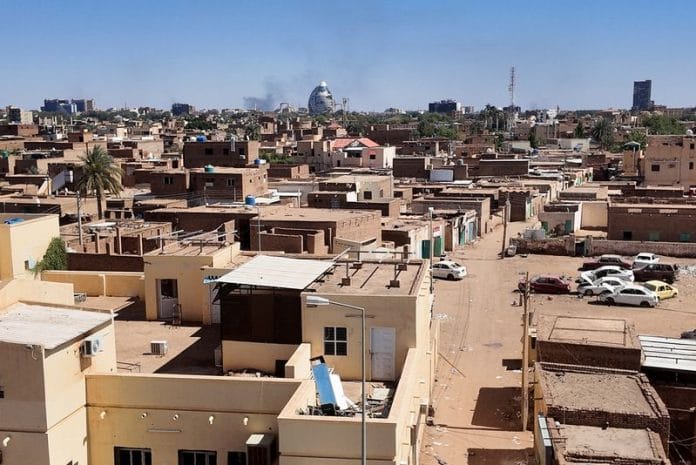Thank you dear subscribers, we are overwhelmed with your response.
Your Turn is a unique section from ThePrint featuring points of view from its subscribers. If you are a subscriber, have a point of view, please send it to us. If not, do subscribe here: https://theprint.in/
Africa has long been a contested arena of great power politics, but recent developments in Sudan show how the continent’s conflicts are increasingly being reshaped by actors outside its borders. Iran’s renewed intervention in Sudan, through military aid, diplomatic engagement, and the export of ideological influence, has reignited concerns of a new proxy front emerging in the Horn of Africa. What at first glance may seem like an extension of Sudan’s grinding civil war is in fact a development with implications far beyond Khartoum’s battlefields. It is about Tehran reasserting its presence in the Red Sea corridor, leveraging African instability as part of its wider global strategy.
Sudan’s Civil War: Now a Proxy Arena
The Sudanese conflict, sparked by the rupture between the Sudanese Armed Forces (SAF) and the paramilitary Rapid Support Forces (RSF), was already devastating on its own terms. Yet, as foreign actors deepen their stakes, the civil war is morphing into a proxy contest. Iran, which once enjoyed warm relations with Khartoum before a diplomatic break in 2016, has returned with renewed vigour. Reports point to shipments of Iranian drones to Sudan’s army, tilting the balance on the battlefield.
This is not simply transactional arms diplomacy. For Iran, Sudan’s turmoil offers an opportunity to test and expand its drone warfare doctrine in a live theatre, much as it did in Yemen and Syria. For Sudan’s military leadership, Iranian weapons provide a lifeline at a time when its rival, the RSF, draws resources and support from other external patrons, including Gulf backers. The result is a conflict less about Sudanese grievances and more about whose foreign partners can sustain their clients longer.
Red Sea and the New Great Game
Beyond the trenches of Khartoum, Iran’s move into Sudan carries larger strategic meaning. At the heart of this lies the Red Sea. Flanked by some of the world’s busiest maritime trade routes, the Red Sea has become a prized chessboard for global powers: the U.S. and its allies keen to safeguard freedom of navigation, China expanding its naval foothold in Djibouti, Turkey reviving Ottoman-era influence, the Gulf monarchies safeguarding their western flank, and now, Iran looking to project power.
For Tehran, re-engagement in Sudan opens a southern corridor to the Red Sea. Already entrenched in Yemen through its backing of the Houthis, Iran now has the chance to operate on the African side of the maritime chokepoint, enabling it to exert asymmetric pressure on one of the world’s most vital shipping lanes. This is especially potent in the context of escalating U.S. – Iran.
The implications extend beyond military manoeuvring. Iran’s outreach carries an ideological strand too. By positioning itself as a partner to governments under siege or sanctions, Tehran is selling a narrative of “resistance” against Western dominance.
African Geopolitics in Flux
Iran’s return to Africa must also be read against the backdrop of intensifying global competition across the continent. Where once Africa was framed primarily in terms of Western aid and Chinese investment, it is now increasingly a space of multi-layered strategic rivalries. Russia has expanded influence via the Wagner network and bilateral security agreements. Gulf monarchies are investing heavily in ports and agribusiness. Turkey has built a wide military-diplomatic footprint. And the U.S. is struggling to maintain relevance amid repeated coups in the Sahel and waning credibility.
Into this crowded arena, Iran inserts itself with a distinctive toolkit: ideological solidarity, cheap but effective weaponry, and a willingness to embrace pariah regimes others may avoid. Tehran’s comparative advantage is its ability to sustain low-cost, asymmetric influence. If successful, Iran’s model may attract imitators or inspire competitors to deepen their own unconventional engagements in Africa.
Implications for the Region and Beyond
At one level, the direct risk is the prolongation of Sudan’s war. External fuel will make compromise less likely, entrenching divisions and amplifying humanitarian catastrophe. At another level, Iran’s manoeuvres threaten to further destabilize the fragile security architecture of the Red Sea corridor.
For regional powers like Egypt, Saudi Arabia, Israel, and the UAE, Iran’s presence is particularly troubling. And for Africa itself, it is a stark reminder that the continent’s conflicts cannot be quarantined, they are increasingly plugged into global rivalries.
Iran’s resurgence in Sudan is not an isolated act but part of a broader playbook: insert into fragile states, build influence through arms and ideology, and leverage instability to project power. For Sudanese civilians, it means a bloodier and longer conflict. For Africa, it signals the return of proxy geopolitics, where local wars are subsumed under external agendas. And for the Red Sea, it raises the stakes of strategic competition.
The question is not whether Sudan matters to the world, but whether the world recognizes how deeply its rivalries now shape Sudan – and through it, Africa’s geopolitical future.
These pieces are being published as they have been received – they have not been edited/fact-checked by ThePrint.


